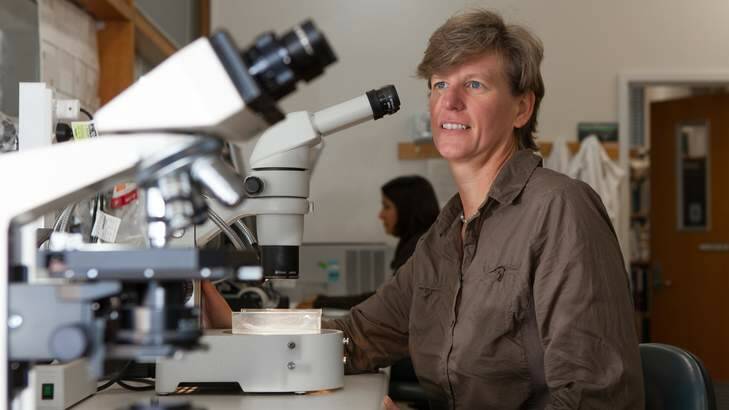The mystery and secrecy of truffles is part of their allure - and has been a large part of some of the Australian industry's biggest successes and most heart-breaking failures.
Subscribe now for unlimited access.
or signup to continue reading
But with many growers still struggling to produce commercial crops, the industry is committing to a certification scheme that will remove a little of the mystery, but provide a lot more certainty for truffieres around the nation.

The delicate balance between mystique and practicality is something Associate Professor Celeste Linde of the Australian National University's Research School of Biology has become familiar with over the past few years.
When the still-young Australian truffle industry realised up to 90 per cent of its potential growers weren't really producing, they asked Professor Linde to investigate.
''At least there were some people that said let's look at the trees before we plant them, because most people just trusted nursery people,'' she said. ''The inoculation process is kind of secret, being the truffle industry … none of them would divulge to me what the process is.''
Truffles are mycorrhizal, or mutually beneficial, fungi that grow on the roots of oak and hazel trees that have been inoculated with truffle spores. But what Professor Linde found was some trees had not been adequately inoculated, or had been inoculated with an inferior species.
What followed was consternation from growers, and even a legal threat from a nursery. And it wasn't just the revelation of poor inoculation: Professor Linde believes understanding how truffles grew, attached to tree roots, threatened some of the magic and romance of this previously unknown phenomenon.
''That's partly where the mystique of truffles came from, years ago. People dug in the soil and saw this black stuff and there's this fungus - they didn't realise it comes from the roots,'' Professor Linde said.
But off the back of her research, the Australian Truffle Growers Association is preparing to roll out what they say is a world-first certification scheme in the truffle industry, with the hope it will provide a little more certainty for growers and newcomers alike.
''It just takes out one of the risk factors and makes predictability that little bit better,'' a spokeswoman for the association said.
Under the scheme, potential buyers could send sample seedlings to an independent lab, where the level of inoculation and the overall health of the trees could be tested, and a report sent back with information - not a recommendation - which would allow buyers to make an informed decision.
''It's not really there to create trouble between nurseries … It's simply to provide accurate information about what the inoculation of that stock is,'' the spokeswoman said.
The scheme, which has been altered from a certification program running in Spain, would be a world-first, according to the spokeswoman. The association hopes to have it up and running within about 12 months.

